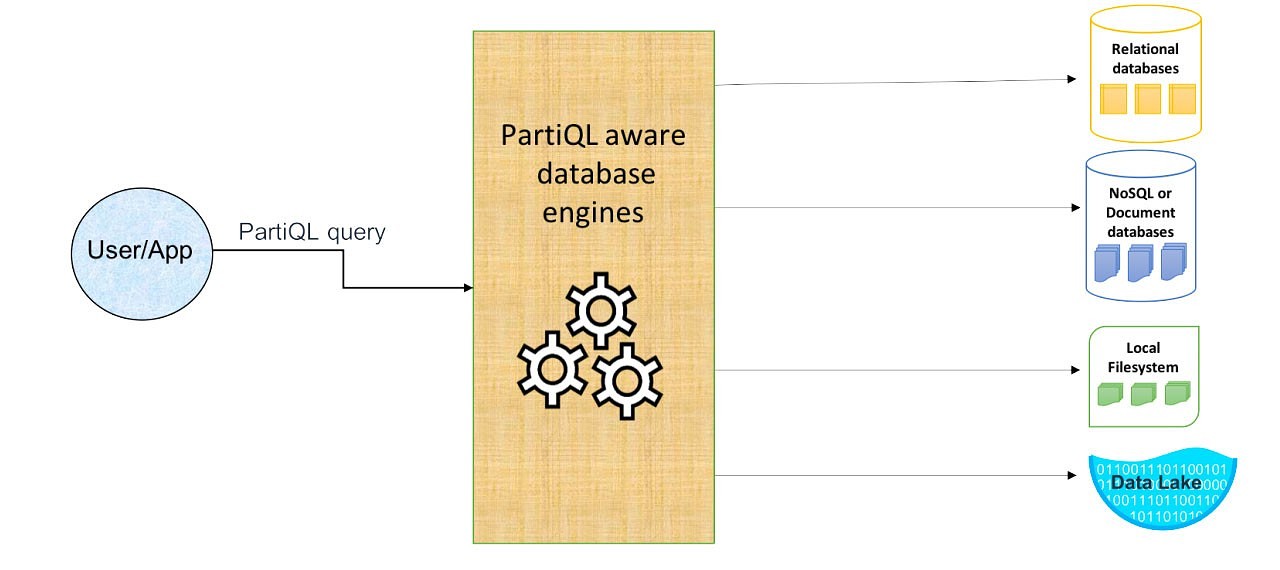#265 — August 2, 2019 |
Database Weekly |

|
|
Amazon Announces PartiQL: A Universal, SQL-Compatible Query Language — PartiQL is a new query language that extends SQL to be able to support non-relational, schemaless and other data formats too. It’s open source and already in use internally in various AWS systems. One of its co-creators also created SQL++ (which saw implementation via Couchbase’s N1QL) several years ago. Papakonstantinou, Goo, et al. |
|
Dgraph Labs Raises $11.5M for Its Unique Graph Database — Far from focusing on the money, this post from Dgraph really digs into why Dgraph exists and how it takes a different approach to most graph databases (by being graph-based at its core, and not merely a pile of abstractions on top of a traditional relational database). Manish Rai Jain |

Building a Data Stream for IoT with NiFi and InfluxDB — Combining NiFi & InfluxDB results in secure, accessible, and usable IoT data streams. This solution enables a single data view across all facilities providing proactive maintenance, failure detection, and more. InfluxData sponsor |
|
Database Deep Dives: CouchDB — There was a lot of buzz around CouchDB, an early document-oriented NoSQL database, 10 years ago but it doesn’t pop up on our radar so much now.. so it’s great to see it’s still under active development and has plenty of use cases. This piece orients itself around an interview with two key CouchDB team members. Josh Mintz (IBM) |
|
PDF: The Data Engineering Cookbook — A still-under-development ‘cookbook’ attempting to cover the main ideas in data engineering that are worth knowing. It’s incomplete, but there’s enough to enjoy if you want to learn the big picture. Andreas Kretz |
|
Understanding Azure SQL Database’s SLA — Two major changes for Azure SQL Database’s service level agreement: a 99.995% availability SLA in its business critical tier, and a ‘business continuity SLA’ for geo-replicated databases. Alexander Nosov (Microsoft) |
|
Book Review: 'Designing Data-Intensive Applications' by Martin Kleppmann — I’ve seen a lot of love for this book and this review, which goes into quite some depth about what the book covers, is no exception. A neat book to learn about data modeling, query languages, formats, transactions, and distributed databases and how they all tie together. Henrik Warne |
💻 Jobs |
|
Find a Job Through Vettery — Vettery matches top tech talent with growing companies. Create a profile to get started. Vettery |
📒 Everything else |
|
An Introduction to Apache Cassandra — Cassandra isn’t your typical RDBMS and this introduction gives a clear description of what all the buzzwords associated with Cassandra mean.. John Hammink |
|
A Dive into PostgreSQL on AWS Aurora — Amazon Aurora boasts PostgreSQL compatibility but what does it really offer, how is it to use, and what are its limitations? Viorel Tabara takes a look. Severalnines |
|
Chaos Engineering Through Staged Resiliency — This series outlines the 5 Stages of Resiliency. Understand each stage and how to move from one stage to the next. Gremlin sponsor |
|
Coming in MongoDB 4.2: Pipeline Powered Updates and More Expressive Queries Dj Walker-Morgan (MongoDB, Inc.) |
|
An Introduction to Parallelism in PostgreSQL — Some interesting digging into what parallelism really means in modern versions of Postgres, including how parallel sequential scans, aggregations, and B-tree scans speed things up. Ibrar Ahmed |
|
Running Decision Trees in Neo4j — Discover how Neo4j works with decision trees to deliver fast results for solving real-world problems, with an unorthodox ‘nightclub’ example. Max de Marzi |
|
Combined Indexes vs. Separate Indexes in PostgreSQL — A common question when it comes to designing relational databases relates to when composite indexes (indexes that involve multiple columns) make more sense than single column indexes. Hans-Jürgen looks at some scenarios in Postgres. Hans-Jürgen Schönig |
|
Liftbridge: Lightweight, Fault-Tolerant Message Streams — A server that implements a durable, replicated message log for NATS. Liftbridge |